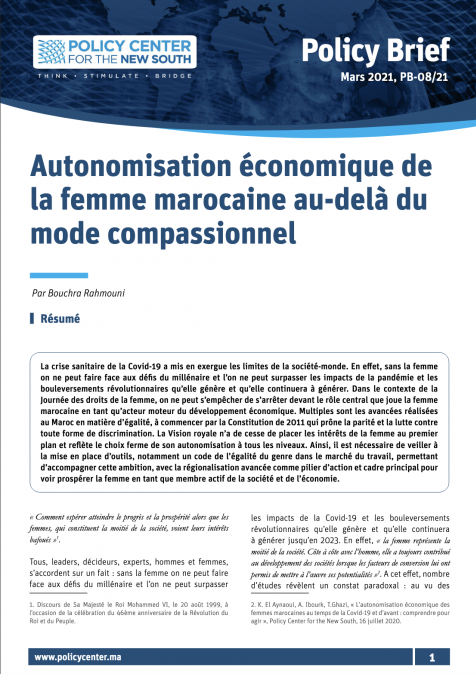Les Mardis du PCNS - 08/12/2020 : محاربة العنف القائم على النوع الاجتماعي: بين المكتسبات والصعوبات
اكتسبت حملة الستة عشر يوماً العالمية لمناهضة العنف القائم على النوع الاجتماعي والتي أطلقها مركز القيادة العالمية للمرأة في معهده العالمي الأول للقيادة النسائية في عام 1991 قوة جذب في أكثر من 187 دولة بمشاركة أكثر من 6,000 منظمة. إذ أن العنف القائم على النوع الاجتماعي من المشاكل الواسعة انتشارا فيما يخص حقوق الإنسان الدولية والصحة العامة، لكن التدخلات لمنعه ومواجهته بطريقة مناسبة ومميزة وفعالة غير كافية في معظم بلدان العالم. حتى قبل أن يجتاح العالم فيروس كوفيد-19، وصل العنف ضد النساء والفتيات إلى مستويات تصل حد الجائحة. على الصعيد العالمي، 243 مليون امرأة وفتاة تعرضن لسوء المعاملة على يد الشريك في العام الماضي. وفي الوقت نفسه، فإن أقل من 40 في المئة من النساء اللائي يتعرضن للعنف يبلغن عنه أو يطلبن المساعدة. مع قيام البلدان بتنفيذ تدابير الإغلاق للحد من انتشار فيروس كورونا، اشتد العنف ضد المرأة، وخاصةً العنف المنزلي - ففي بعض البلدان، زادت المكالمات الواردة إلى خطوط المساعدة خمسة أضعاف. وفي حالات أخرى، انخفضت التقارير الرسمية عن العنف الأسري حيث تجد الناجيات صعوبة في طلب المساعدة والحصول على الدعم من خلال القنوات المعتادة. ليس هذا فحسب بل أدى إغلاق المدارس والضغوط الاقتصادية إلى جعل النساء والفتيات أكثر عرضة للعنف والهشاشة. كيف يمكن تعريف العنف القائم على النوع الاجتماعي؟ وكيف تتمثل أبعاده في واقعنا وحياتنا اليومية؟ ما هي المكتسبات التي تم تحقيقها على المستوى الوطني إلى اليوم وماذا عن مدى تفعيلها وصعوبات ضمانها في المجتمع؟ ما هي رهانات المرأة والمجتمع بكل مكوناته لإدراج مقاربة النوع بشكل متقاطع في كل المجالات وعدم اعتبار هذه المقاربة كحقل منفصل خاصة في ظل هذه الأزمة وترتباتها مستقبلا؟ كيف يمكن للمنظمات المدنية المهتمة بقضايا النوع الاجتماعي، المساهمة في جهود الدولة والمؤسسات الدولية من أجل محاربة العنف القائم على النوع الاجتماعي؟ وما هي الدروس المستخلصة من الجائحة؟







